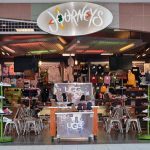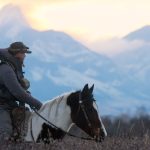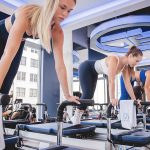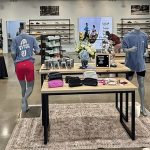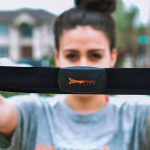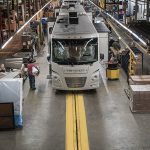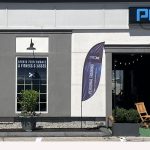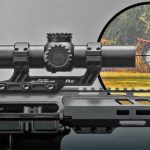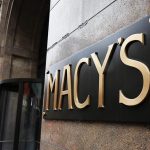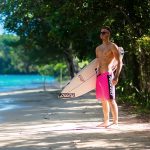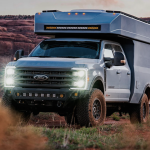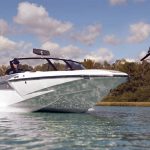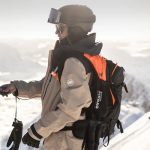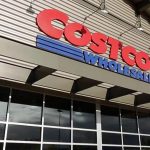Quiksilver reported a very solid fiscal third quarter with sales climbing in the low double-digits and income outpacing sales by more than a two to one margin, but the company probably received more attention for their announcement that they would move the acquired Rossignol business — and all other company U.S. Wintersports functions — to Park City, Utah.
“When Quiksilver first acquired Rossignol, the vision behind the acquisition was that Quiksilver wants to capture a leadership position in the Outdoor Market, particularly in SnowSports,” Rossignol North America president Francois Goulet told BOSS. “This relocation is only the first step in the Master plan to accomplish this.”
DC Shoes, which has been part of the Quiksilver, Inc. group since 2004, already operates an existing Park City-based Mountain Lab which helped the brand develop its snowboard boot program. The DC Mountain Lab will play an integral role in the new facility. Quik will also establish a new distribution facility in the Salt Lake City area that will serve the Americas territory for all mountain-related products. Currently, Quik is shipping equipment from six different facilities in the U.S., often to the same retail customer. These will all be consolidated into the SLC facility.
Many of Rossignol's administrative functions such as treasury, human resources and legal will be consolidated with Quiksilver's existing infrastructure in Huntington Beach. Many functions that have been separate for the Rossignol and Dynastar brands will also be combined. This is expected to result in annual savings of approximately $1 million. The move from Vermont is estimated to the cost the company approximately $5 million, but the company will be selling the existing facilities in Vermont and current estimates are that it's worth over $4 million.
Rossignol said it expects to lose about 25% of its staff moving from Vermont to Park City, but other sources told BOSS recently that they saw little resistance from staff. One can only assume the allure of a long winter of powder may be too good to pass up. The consolidation of Quiksilver's snowboard facilities in the Northwest and the related move of some functions of Park City again will result in a 30% staff reduction.
According to Goulet, there were several key reasons for the move, including Park Citys close proximity to recreation and the core users that will be a key audience for the company. Additionally, Park City is only an hour flight from Quiksilvers headquarters in Huntington Beach, CA. Goulet said that Park City is the “cultural center of the outdoor lifestyle,” making it a prime location.
There is still no word on who will be heading the new Outdoor division of Quiksilver, Goulet said that it is still too early to make that decision. The company chose to announce this relocation early in an effort to be transparent to its employees in Vermont. Quiksilver will still maintain a Rossignol and Dynastar presence in Vermont with a sales office, showroom, and athlete support office, but all of the administrative, sales, marketing, and R&D will be in Park City.
Rossignol is also implementing an early retirement program for some of its people in its French manufacturing facility. Under this plan, French production capacity will decrease and capacity in Rossignol's updated Spanish factory will increase. Approximately 130 people are affected.
The majority of the companys third quarter conference call revolved around the Rossignol acquisition and the resulting integration efforts. Quiksilver CEO Bob Mcknight told analysts and the media that the acquisition will “transform our company.”
Quiksilver president Bernard Mariette summarized the vision behind the integration, stating that Rossignol can benefit from much the same model that has fueled Quiksilver growth since its inception as a technical surf brand. He said they expect to evolve Rossignol as well from its current position as a leading hard line ski equipment manufacturer to the leading mountain lifestyle brand.
Quiksilvers first order of business is to improve the profitability of Rossignols snowboard business which represents about 6% of revenues in Rossignol's fiscal 2005. During the year, the operating loss in the snowboard division globally was about 6 million ($7.5 mm). Through a combination of better sourcing and operating efficiencies, ZQK management believes they can bring the profitability of this business to “acceptable” levels. They also feel that they can enhance Rossignol's performance with the expertise of the DC Shoes team on the snowboard and boots side, and the combination of Quiks snowboard binding businesses with Rossi's snowboard binding business should improve operations.
The company has already launched the Roxy line of Alpine products — a full line of ski boots, bindings and poles. The Roxy skis are being designed and manufactured in collaboration with Dynastar, while the boots are being designed by Langes R&D center in Italy.
Delivery is expected to begin in October and November.
Given the product development cycle, it will take some time to properly re-launch Rossignol's apparel business. The company doesnt expect this to be felt until fiscal 2007. Rossignol currently has “mid single digit” operating margins, but management feels that once the apparel business is brought up to speed, this can increase to the double digits.
Looking at Quiksilvers third quarter, management said that its back-to-school business has been solid in its core market and doing well in the youth chain stores, but business is “mixed” in department stores.
As of July 31, Quiksilver operated 186 company-owned shops with 70 in the Americas, 92 in Europe and 24 in Asia-Pacific. They also have 190 license shops, with 18 in the Americas, 145 in Europe and 27 in Asia-Pacific.
On a regional basis, The Americas division saw flat gross margins at 40.1%, while operating income inched up 1.3% to $22.9 million. On a constant dollar basis, European sales increased 14% for the period while gross margin improved 460 basis points to 55.0% of sales. The growth in company-owned retail is also helping European margin. EU Operating profits jumped 43.6% to $19.1 million. Total currency-neutral sales in the Asia-Pacific division were up 21% on a constant dollar basis. The region narrowed its Q3 operating loss by nearly 21% to $6.5 million.
Quiksilver also indicated that its expectations for fourth quarter revenues, which will include contributions from Rossignol, will range between $582 million and $592 million. Diluted earnings per share will range from 26 cents to 27 cents per diluted share. For the full fiscal year, revenues are expected to range between $1.73 billion and $1.74 billion with diluted earnings per share ranging from 86 cents to 87 cents per diluted share.
| Quiksilver, Inc. | |||
| Fiscal Third Quarter Results | |||
| (in $ millions) | 2005 | 2004 | Change |
| Total Sales | $373.8 | $337.9 | 10.6% |
| Americas | $196.3 | $187.9 | 4.5% |
| Europe | $133.6 | $115.4 | 15.7% |
| Asia Pacific | $43.1 | $33.1 | 30.3% |
| Gross Margin | 46.8% | 44.5% | +230 bps |
| SG&A % | 35.7% | 35.2% | +60 bps |
| Net Income | $24.6 | $19.5 | +26.2% |
| Diluted EPS | 20¢ | 16¢ | +25.0% |
| Acct Rec @ Qtr-end | $428.3 | $281.3 | +52.3% |
| Inven @ Qtr-end | $25.2 | $22.3 | +13.0% |

